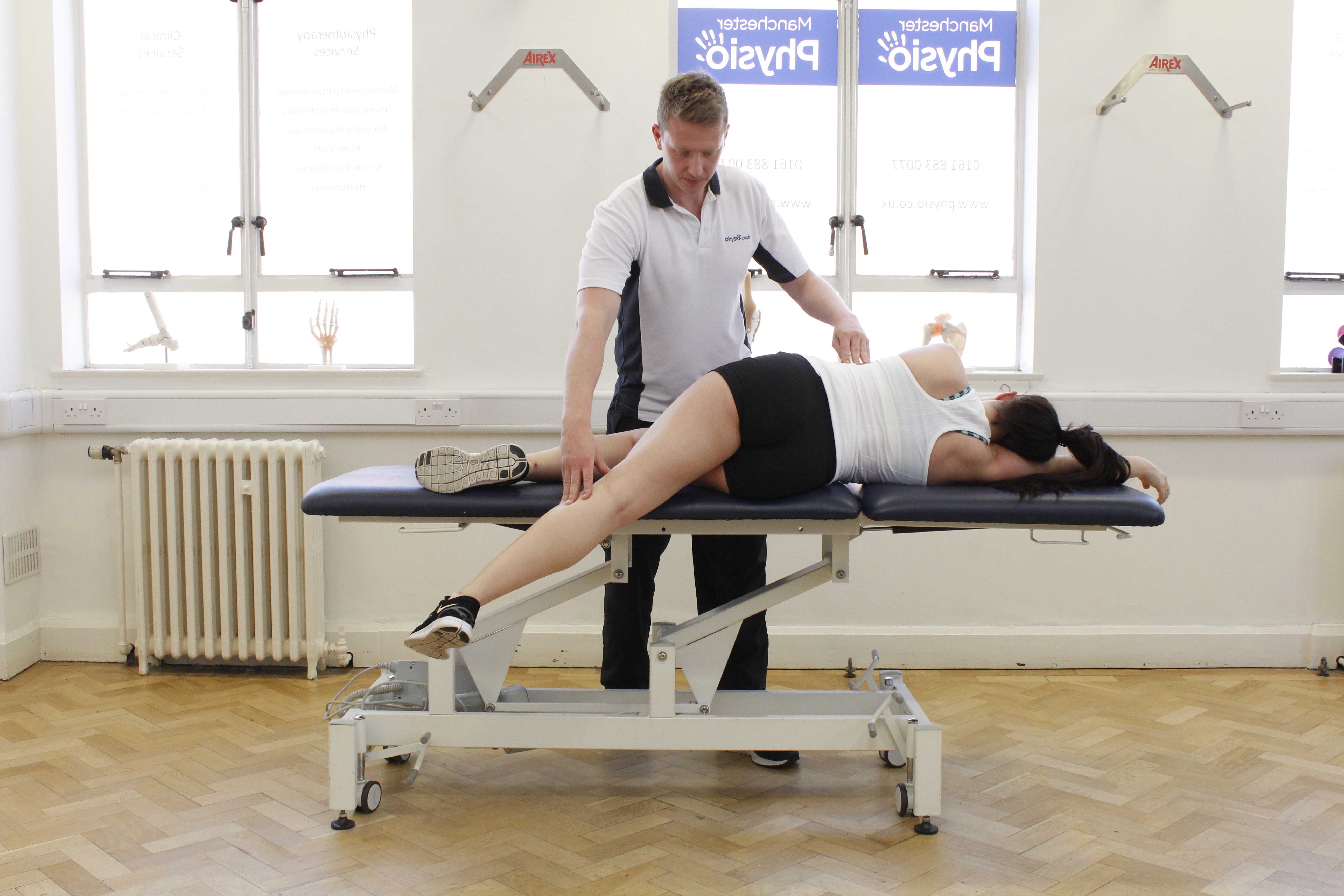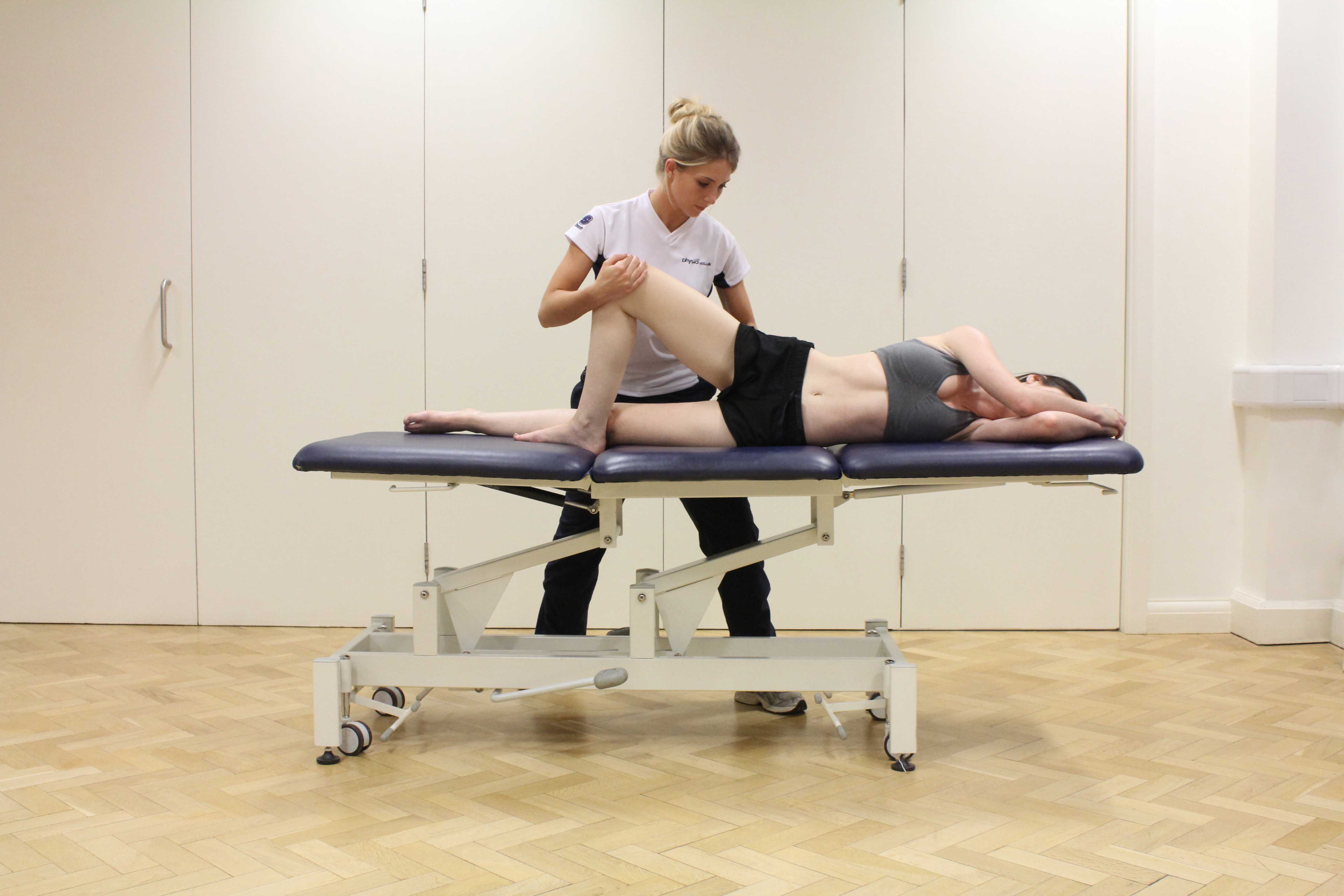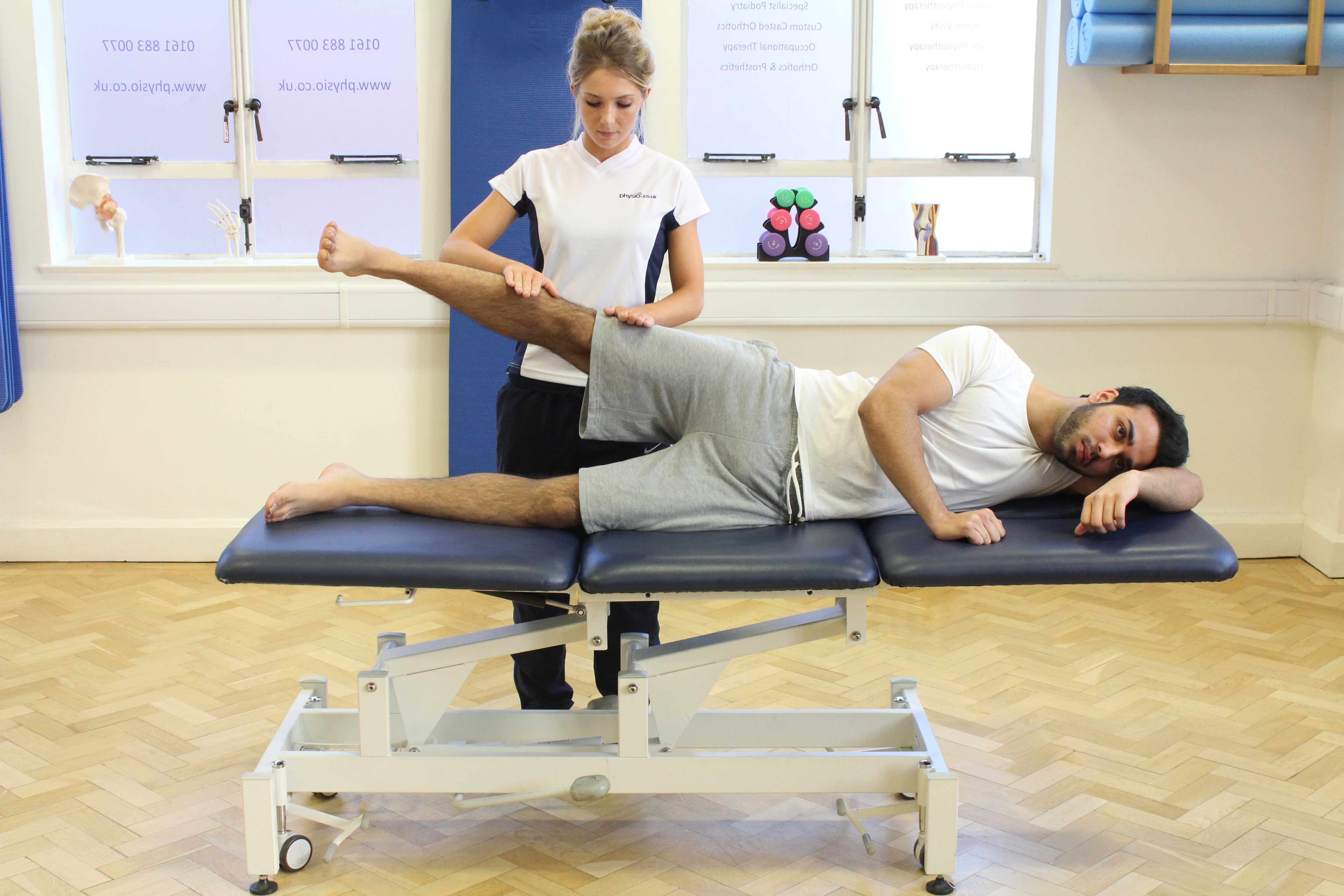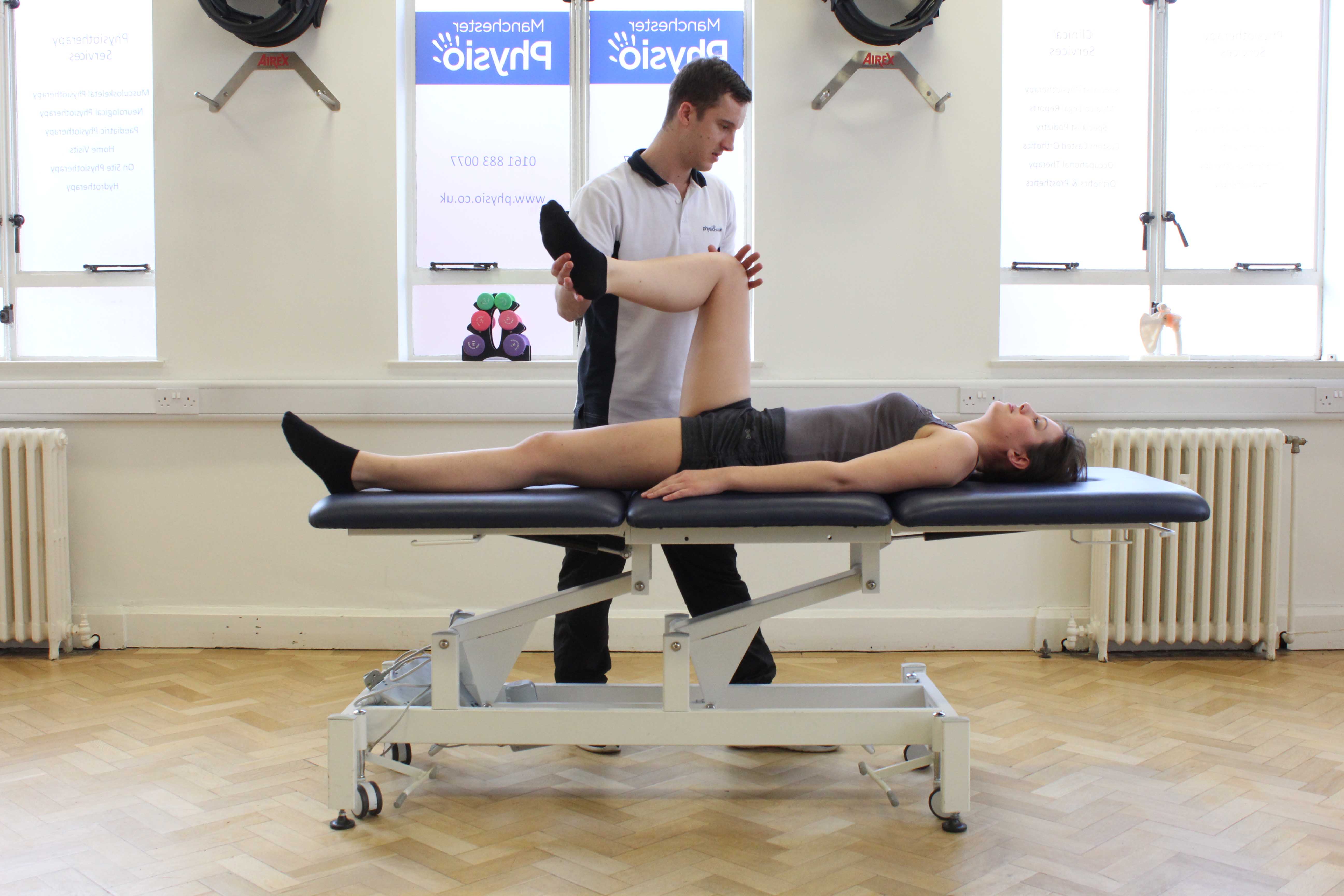What is hip impingement?
Hip impingement, also known as femoroacetabular impingement (FAI), is caused by anatomical changes in the hip joint. The head of the femur (thigh bone) usually moves smoothly within the acetabulum (hip socket). There are two types of hip impingement:
- Cam impingement: the femoral head is abnormally shaped and can become stuck in the acetabulum with some movements of the hip.
- Pincer impingement: the acetabular socket is very deep and the femoral head and neck can catch on the rim of the acetabulum.
 Above: Soft tisue massage of the muscles and connective tissues around the hip by specialist therapist
Above: Soft tisue massage of the muscles and connective tissues around the hip by specialist therapistHow does hip impingement happen?
Hip impingement is most commonly experienced by athletes or active individuals. However, it can sometimes be due to biomechanical abnormalities of the hip joint for unknown reasons.
What are the symptoms of hip impingement?
There are many different symptoms of hip impingement depending on the type and severity of your condition. These can include:
 Above: Passive stretch of the muscles and connective tissues of the hip and pelvis by specialist therapist
Above: Passive stretch of the muscles and connective tissues of the hip and pelvis by specialist therapistWhat should I do if I have hip impingement?
Physiotherapy is an excellent conservative (non-surgical) treatment of hip impingement. Once you have received a professional diagnosis (from an MRI scan or X-ray), you should have a physiotherapy assessment as soon as possible.
Physiotherapy treatment for hip impingement.
Your physiotherapy treatment will depend on what your physiotherapist finds in the initial assessment. Physiotherapy may include a range of strengthening and stretching exercises tailored to your condition. Other treatment options include:
- Hydrotherapy
- Core Stability Exercises
- Proprioceptive Exercise
- Manipulation / Mobilisation
- Exercise Programmes
 Above: Progressive strengthening hip exercises supervised by experienced therapist
Above: Progressive strengthening hip exercises supervised by experienced therapistWhat shouldn’t I do if I have hip impingement?
If you suspect you may have hip impingement, it is important not to ignore your symptoms. Do not continue with your normal activities, as this may make the condition worse.
Could there be any long-term effects from hip impingement?
If you do not seek professional help for hip impingement as soon as possible, your recovery can be prolonged. Physiotherapy is usually sufficient to minimise the symptoms of hip impingement, but occasionally in more severe cases, surgical options may have to be discussed.
 Above: Progressive strengthening hip exercises supervised by experienced therapist
Above: Progressive strengthening hip exercises supervised by experienced therapistTo arrange a physiotherapy assessment call Physio.co.uk on 0330 088 7800 or book online.

 0330 088 7800
0330 088 7800





































